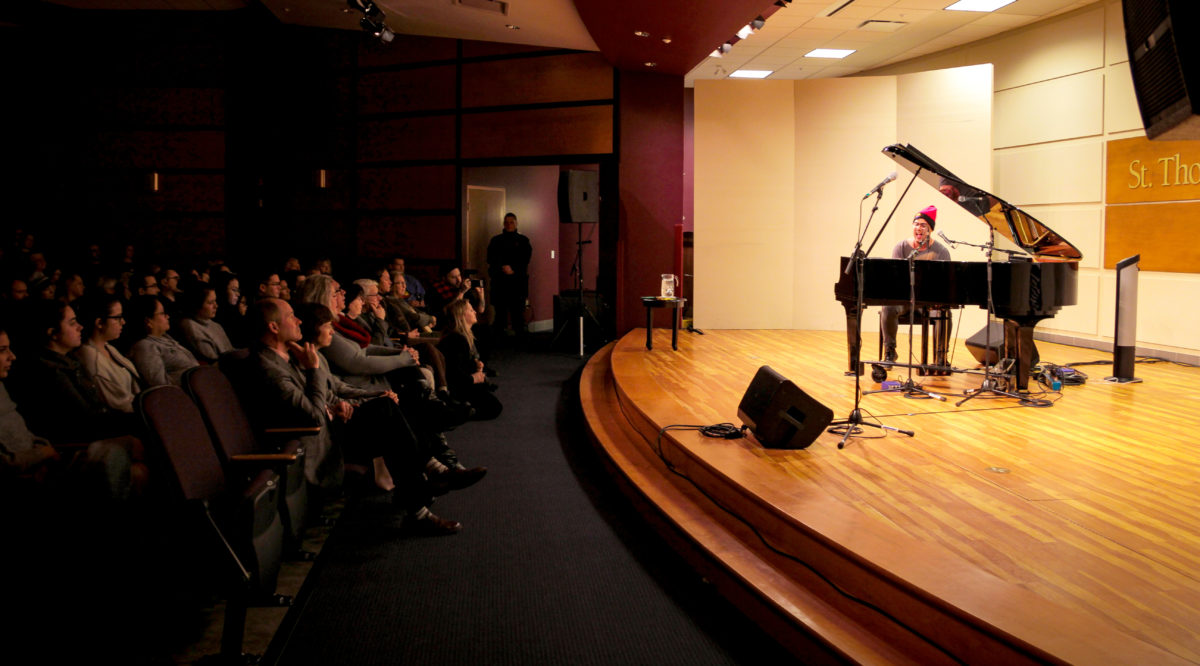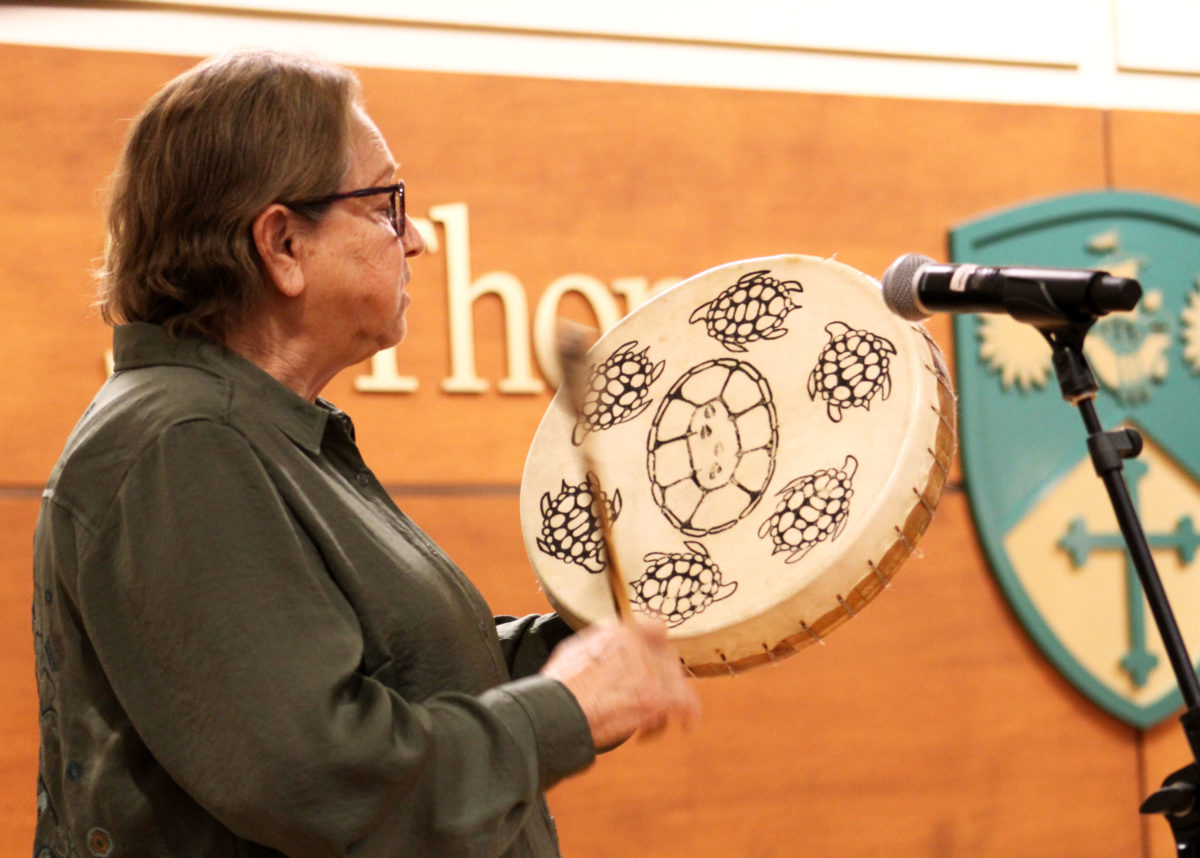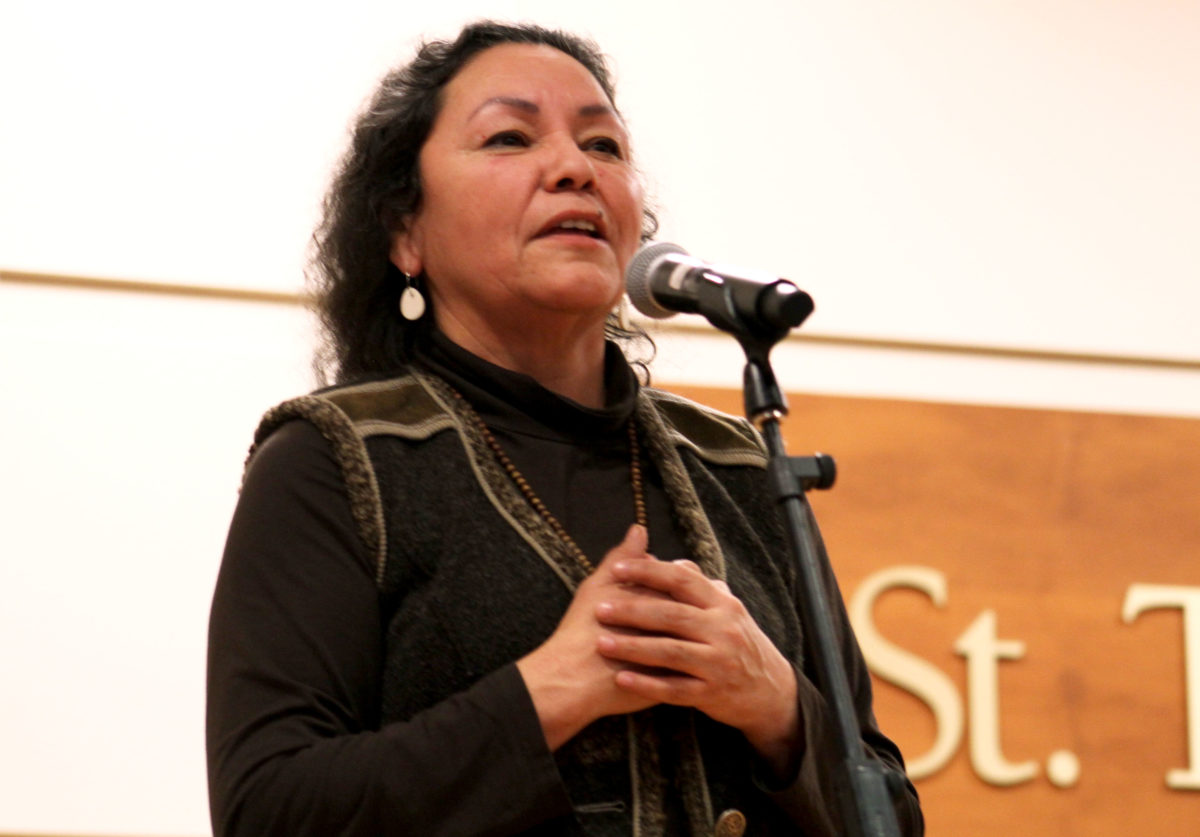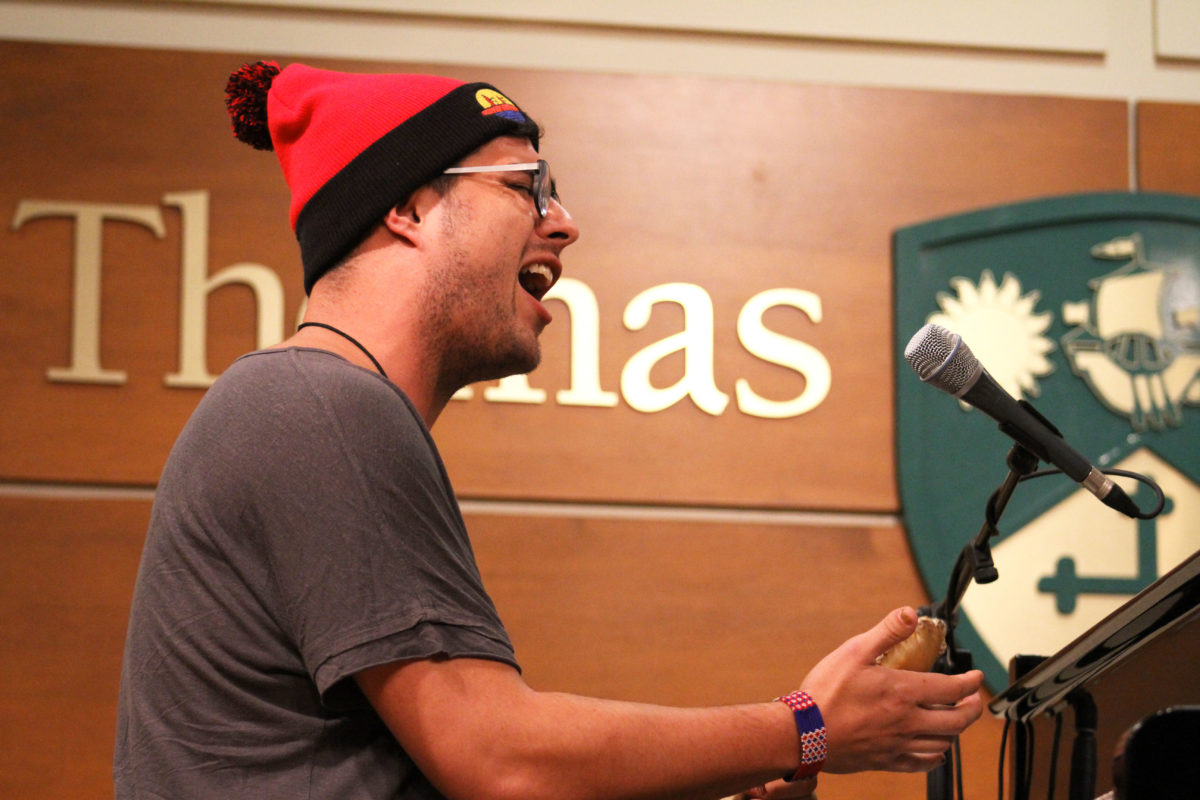Jeremy Dutcher stepped on stage in the Kinsella Auditorium, starting the afternoon by paying tribute to the recent passing of Gary Sappier, a renowned blues artist and fellow member of Tobique First Nation.
Dutcher performed a free show on Jan. 24 for St. Thomas University students as part of the Shivering Songs festival.
The 2018 Polaris Music Prize winner said he has spent the majority of his time on planes and living out of suitcases and hotel rooms since winning in September.
When asked what his first thought was after he won, Dutcher said, “Oh shit, I should have packed more thoroughly.”
Dutcher performs his songs in the traditional language of the Wolastoqiyik people.
“At the end of the day, [I’m] so proud that our little language group here in little New Brunswick has a national stage, and now I feel immense responsibility to go and to speak honestly and truthfully about the issues that are happening in this part of the world.”

Dutcher’s album, Wolastoqiyik Lintuwakonawa, is a collection of songs based on field recordings that came from his community about 110 years ago.
“So, this anthropologist he went, and he lived in our communities for about seven years and collected over 100 traditional songs and preserved them onto wax cylinders,” Dutcher said.
But the recordings were taken from the Wolastoqiyik community where they were originally recorded, and stored at the Canadian Museum of History in Gatineau, Quebec.
Dutcher wanted to return the songs that were disconnected from his community.
“The problem I wanted to solve in making this record and creating this piece was that I wanted young people to know these songs again.”
He said it was important to record the songs in his traditional Wolastoqiyik language since there’s less than 100 speakers left. He also noted that he doesn’t provide translations of his songs on purpose.
“I wanted to create a piece of work that spoke to the importance of our language and talk about the journey that it’s gone on,” he said.
“It’s not about people understanding every single word of what I’m saying, it’s about me having a conversation with my community directly.”


Dutcher kept the crowd in an intrigued hush as he replaced the oxygen in the room with his soul-shaking tenor and flawless phrasing, keeping the heritage in his renaissance renditions pure and true.
His intimate set was highlighted by songs like “Eqpahak,” which began with a sample of an interview he conducted with an elder while researching for the album, and “Sakomawit,” which enthralled the audience in equal parts vocal prowess and spirituality.
Toward the end of his set, Dutcher also shared a cover of Joni Mitchell’s “Cherokee Louise,” a song written for one of her Indigenous friends, after sharing a light-hearted story of being asked to play for Mitchell’s birthday.
While he focused on acknowledging and honouring the presence of the Wabanaki people in the audience, Dutcher brought everyone at the conclusion of each song into a collective chant of “tahoe,” an expression of triumph.


With his intense tour schedule, he said it’s important to stay true to the message he wants to send.
“Fundamentally [it’s] about Indigenous cultural revitalization and the importance of our language in creating our world.”
Dutcher said the one word he always goes back to is “possibility.” He believes that people should create what they want to create, like he has created his album. That’s what he hopes students at STU, especially Indigenous students, took away from his performance.
“If it feels right and if you have the intention to create something, you need to go and do it. Especially for our Indigenous youth because there’s been so many barriers placed in the way,” he said.
“I think it’s now time for us to share whatever feels true to us to share. And that is enough, and that is important in this moment.”
With files from Johnny James

